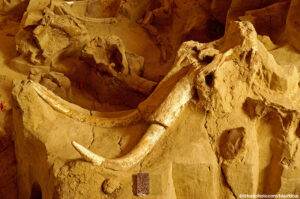
Update on Mars Rover
Back in 2012, btw brought you news of the successful landing of the Mars rover, Curiosity. A year later, we reported on the disappointing news that life on the red planet is officially highly unlikely. This week, btw reports that Curiosity has reached its primary destination, the base of Mount Sharp. It took the rover nearly two years to reach a distance within walking distance of its landing site because navigating the challenging terrain was a painstakingly delicate process. The rover was also diverted off its original course (to explore a discovered lake bed in the opposite direction, for example).
Additionally, NASA’s MAVEN probe jbegan its own study of the Red Planet’s atmosphere last weekend. The objective of this satellite is to study the atmosphere on Mars, which has air pressure so low that if water were present on the planet, it would instantly boil away. Through the collection of data, scientists at NASA will be able to replicate climate conditions of an earlier time in Mars and understand what happened to its environment.
Dig Deeper Exploratory missions by other countries are also happening on Mars. Determine which countries are involved and the status of any relationship they may have with the United States. What’s next for the Mars Rover and/or other missions?
Terrorist Plot Thwarted in Australia
If you watch the news at all, you’ve likely seen continual coverage of the growing threat from the terrorist group ISIS and the growing threat it poses in the Middle East. Last month, ISIS proudly announced the execution of two American journalists who had been previously kidnapped. Last week, law enforcement officials in Australia completed a carefully-planned anti-terrorist raid, considered the largest of its kind. Motivated by intelligence report that ISIS was planning another public execution, hundreds of heavily-armed officers stormed homes across the cities of Sydney and Brisbane. These homes were those of suspects with a possible link to ISIS. Fifteen people were arrested and detained. At least one person has been charged.
In a speech given a week before the Australian raids, President Obama called for countries to join together to form an international coalition to battle ISIS. So far, nearly 40 nations have answered to call, including Australia, Germany, France, Great Britain, Canada, Saudi Arabia, Turkey, Jordan and Egypt. Even Russia, who has alienated itself from much of the rest of the world, is considering joining the coalition. Continued airstrikes are the likely method of action.
Dig Deeper In response to the raids, there have been protests by several organizations that fear a surge of anti-Islamic violence against Muslims who are not extremists. Find out more about their concerns and efforts.
Mammoth Skeleton Found

When property owner Wayne McEwen from North Texas came across what he thought was the tusk of a ancient beast, he contacted a paleontologist friend. The friend brought in a crew from the Perot Museum to perform an excavation. They ultimately uncovered a nine-foot-tall female Columbian mammoth, a species of elephant that has been extinct for about 10,000 years. McEwen donated the skeleton to the Perot, who will catalog the bones It will then be considered part of the “public trust,” which means scientists are free to study and publish papers about it. The skeleton was named “Ellie Mae,” after the name of the county (Ellis) where it was discovered.
The Columbian mammoth is a relative of the more widely known wooly mammoth and a distant relative of the mastodon. The skeletons of other Columbian’s have been unearthed in Los Angeles, California; Waco, Texas; and in Mexico.
What Do You Think? What would you do if you found what you believed were bones of an ancient (and extinct) species in your backyard? Explain your answer.
Combating Antibiotic Resistance
President Obama recently announced a new strategy to address a growing concern over the impacts of antibiotic resistance. Antibiotics are medicine used to treat bacterial infections by destroying the microorganisms that cause them. Over time, microorganisms evolve and become resistant to the antibiotic designed to eliminate them, making common infections increasingly difficult to treat. Many fear that we could return to a time when people could die from ordinary infections.
The Council of Advisors on Science and Technology (PCAST), made up of a wide-range of experts, was formed by the president and commissioned to create a report. The resulting 65-page document contains recommendations for ways the federal government can confront this issue. In addition, President Obama created a national task force to be comprised of the heads of the national departments of Defense, Health & Human Services and Agriculture. This group will work on a five-year plan of action to be completed by February 15, 2015. Another component of the strategy is the call for the development of a diagnostic test that could be used by health professionals to identify highly resistant bacterial infections. The prize is set at $20 million.
